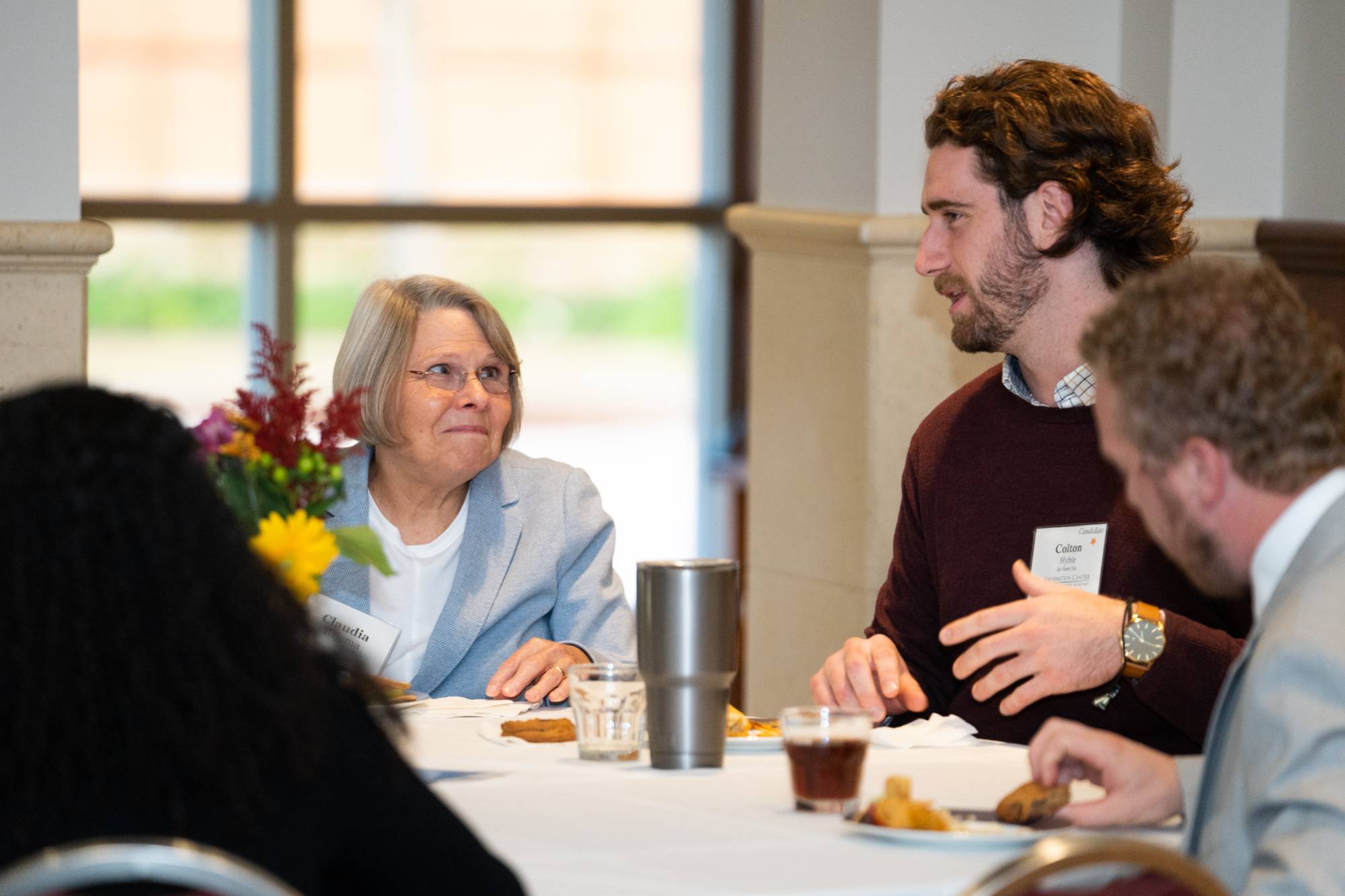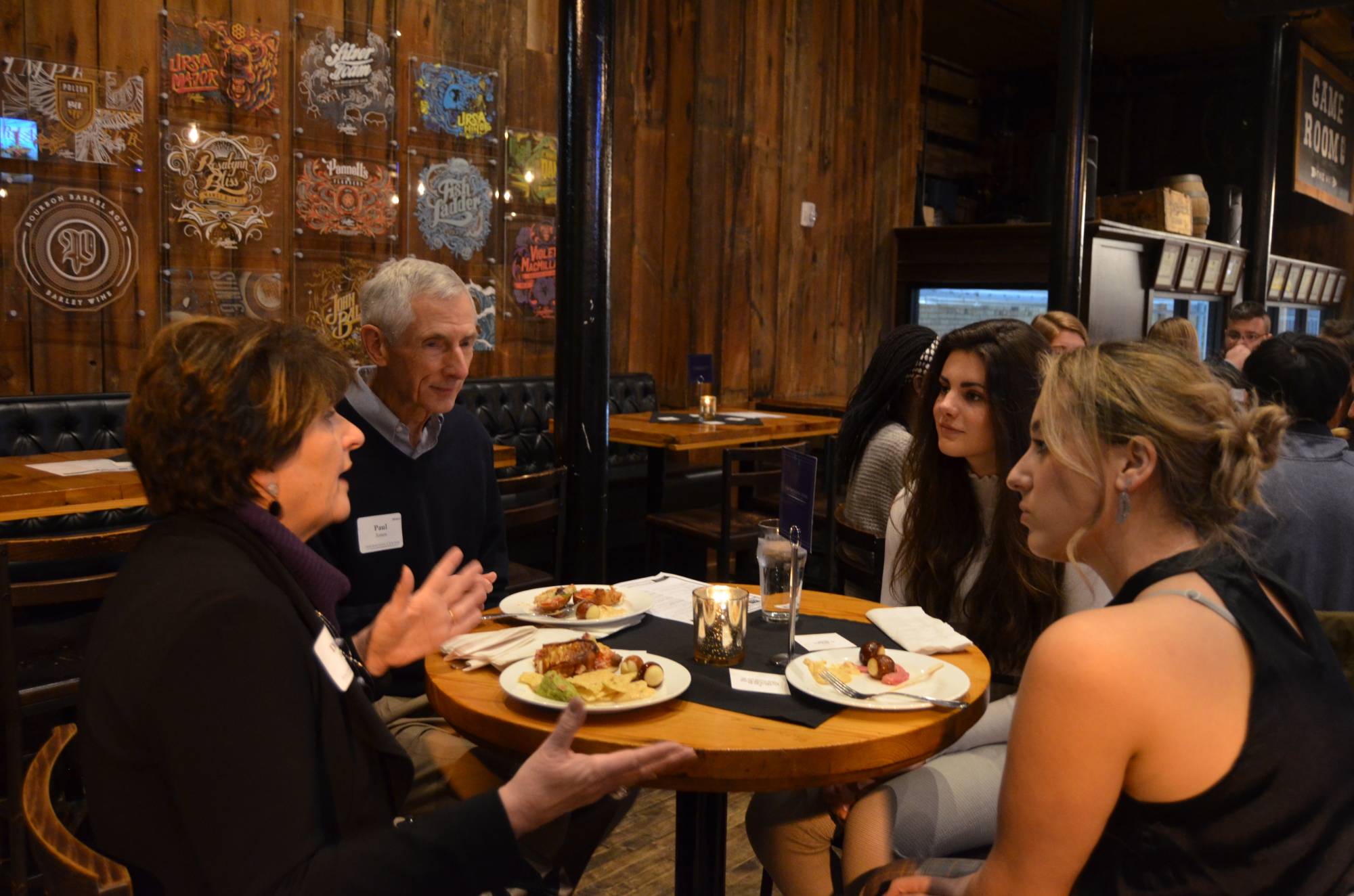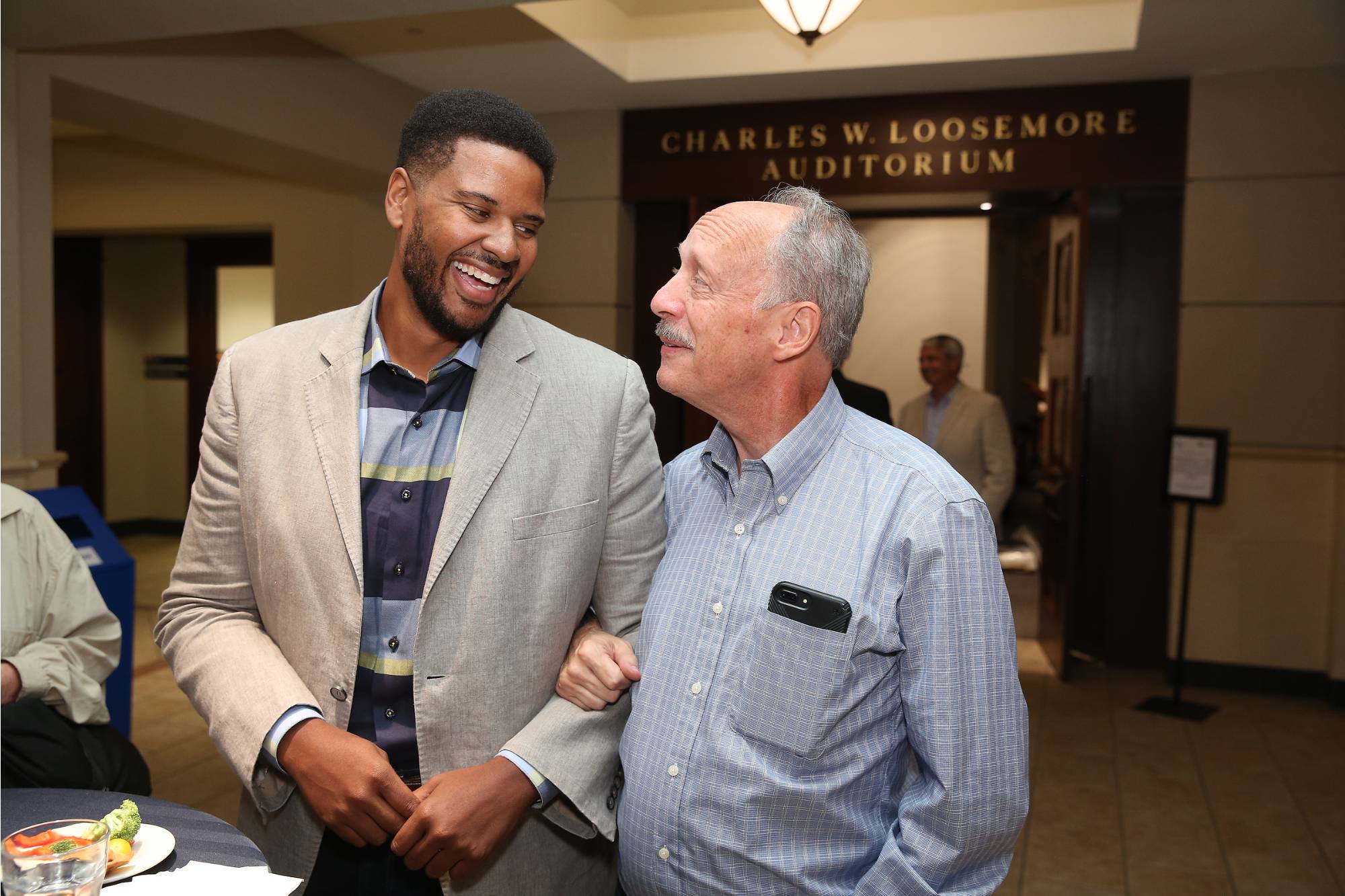
Mentors
Each fellow candidate in the Cook Leadership Academy is paired with a community mentor for the academic year. The candidate and mentor work as a team, helping the candidate tap their potential and think about ways they can improve their leadership skills to best reach their goals. Mentors come from many sectors of the community including non-profit, business, and public backgrounds. Each is dedicated to supporting student learning by providing insights into our group of future community leaders.
“My mentorship was where I could have the most genuine, relevant discussion about leadership in my own life. It's just hard to compete with that.”
—
David, CLA Fellow


[1604935026].jpg)
Mentor Meeting Resources
2023-2024 Peter C. Cook Leadership Academy Competencies adapted from Dr. Corey Seemiller's Student Leadership Competencies
Mentor Modules adapted from Dr. Peter G. Northouse's Introduction to Leadership Concepts and Practice
Mentor Modules
Session 1: "It's a Pleasure to Meet You"
The goal of this first session is for you to get acquainted with your mentor/mentee and to establish both goals and plans for communication and regular meetings going forward.
Session Two: "Conceptualizing Leadership"
Leadership is a combination of strengths (who you are) and abilities (skills you’ve learned) applied to specific circumstances and contexts (actual behaviors and interactions). Conceptualizing leadership as behavior also implies that leadership can be learned and taught. Your conceptualization of leadership is likely to affect the way you lead, so we’re going to spend some time developing that understanding.
Session Three: "Leadership Strengths"
Understanding our personal strengths – what comes naturally to us, and what we naturally excel at – is an important element of developing leadership skills. While it can also be somewhat difficult to discuss our strengths without feeling like we are boasting, honestly acknowledging areas of natural skill helps develop those talents more effectively. Likewise, acknowledging strengths similarly opens up the possibility to examine behaviors or tendencies that could be strengthened as well.
Session Four: "Addressing Ethics in Leadership"
Many of your mentor meetings up to this point have focused on the strengths and ideas that make you an effective leader, but it is just as important to understand the moral dimensions of how you view leadership. The purpose of this meeting is to explore your understanding of ethics, and how you’ve encountered ethical (and unethical) leadership.
Session Five: "Handling Conflict"
Conflict is virtually inevitable in professional (and certainly personal) settings, and handling conflict is a rather universal leadership challenge. Conflicts can arise due to stress, communication styles, competing interests, problem solving approaches, and a host of other major and minor issues. In general terms, conflict can be divided into two camps: content (related to policies and procedures) and relational (over values, beliefs, control, goals).
If you’re already to this point, you’ve completed the first year mentoring curriculum and the academic year is quickly drawing to a close. As you prepare to conclude your mentoring partnership this year, we invite you to take some time to reflect on this experience and celebrate the conclusion of another academic year.
